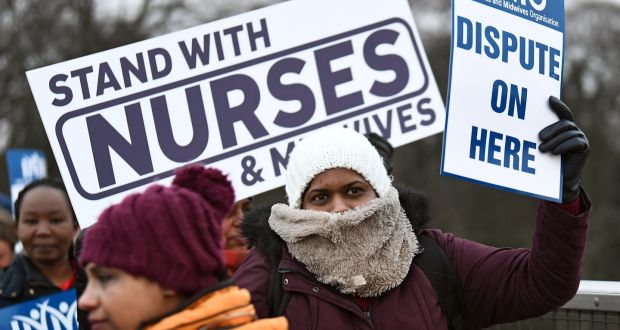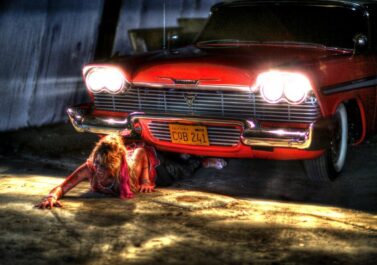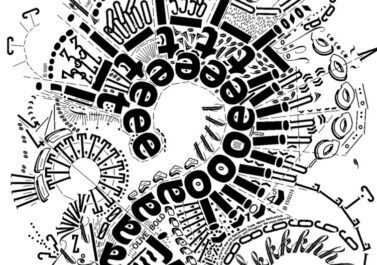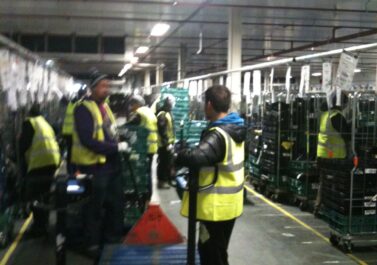Our fourth interview with NHS workers about their situation during and after the lockdown.
Lockdown Interviews – NHS community Midwife
https://letsgetrooted.wordpress.com/2020/07/27/lockdown-interviews-nhs-worke
Lockdown interviews – Student nurse
PPE
I remember at the beginning I looked after the very first positive patient that we had in the hospital and right when we started everyone was so worried about spreading coronavirus around the hospital that we nursed patients 1:1. We had an abundance of PPE and specific donning and doffing policies in order that we put it all on and took it all off in the safest way. Clearly this was not a long-term strategy, but it made people more concerned when they started to strip away our PPE and make us look after more patients. If we had had clear guidance from day one it would have made people feel a lot safer.
As I work in respiratory, we are working with aerosol generating procedures and we therefore have to be fit tested on specific masks to ensure they fit our faces effectively as we are at higher risk. In my hospital we have had such difficulty in getting masks that I have now been fit tested for 5 masks and every time we run out of one, the next delivery is a totally different type. A shift I did just this week I kept my mask in my pocket because we had so few on the ward, I just kept reusing it. We are also currently seeing a huge shortage of gloves (especially size medium). We’re told this is across the hospital and we will get a delivery when one comes.
Early on we ran out of gowns and the replacement alternative was a hazmat suit. We sometimes had to be in these for most of our shifts, often up to two hours at a time. Management originally sent an email around stating that if we needed to be in them then halfway through the day we would swap with another nurse and take a group of patients that didn’t need this much PPE. However, the reality was we rarely had enough skilled staff that this could happen.
The ‘dirty’ NHS
I remember getting an email from the hospital early on to say that we could no longer come to work in our uniforms, as they had members of staff who had been abused on public transport being told that they were spreading coronavirus. I also remember seeing that one of the main supermarket chains had publicly said they would be closing their store after ‘NHS hour’ in order to clean it. This underlying idea that NHS staff were in some way dirty or spreading the virus more than others definitely became something we all noticed on our ward. I had one friend who every Thursday on the dot of 8 would send me a photo of her clapping and it felt like she was trying to prove herself to me by showing that she cared. However once lockdown restrictions began to ease it was that same person who told me I couldn’t come to their birthday as they had friends coming that worked with the elderly and couldn’t risk being around me. As if I was carrying coronavirus on me in some way.
The clap
I know that for some people, at a local level, the clap was a way of showing their neighbours and others that they did care about and want to thank the NHS. At a time when they felt powerless to do anything it gave them a sense that they could contribute. Our neighbours gave us food parcels and bottles of wine and would always be on the doorstep at 8pm. Showing my NHS badge at a coffee shop to get a discount and people in the queue would thank me for everything I was doing. It felt quite a strange place to be in. However, some of those same people also seemed to not regard the social distancing rules and not make that link to ‘protecting the NHS’. Our neighbours were also having parties and carrying on their lives. When we joined one week on the doorstep to clap for our colleagues the neighbours were quick to mention those who had not shown up. As if somehow not clapping was publicly saying that they didn’t appreciate what the NHS was doing.
Donations
We were inundated with food and drinks from various organisations throughout the pandemic, but sometimes it felt as if that was taking the place of breaks. From day one as a qualified nurse it has been widely known (and unfortunately accepted) that we are unlikely to get proper breaks. I should get 2 half an hour breaks in 12.5 hours. This rarely happens, I often stay late and don’t take my second break. Once even being explicitly told by a manager that I shouldn’t expect to leave on time as a newly qualified nurse. And also receiving emails that say our timesheets shouldn’t be changed to reflect staying late unless it was due to a medical emergency. The deliveries of food from local organisations and big corporate companies made this somehow more acceptable. We could grab food from the kitchen and refuel without spending 30 minutes off the ward.
Heroes of the NHS
I have had some horrendous experiences throughout this pandemic. Things I have done in my first year of nursing that I never believed I would do. We have also had some extreme success stories. I don’t like the use of the term hero because it makes me feel as if I made a choice when I started in this career a year ago to put myself in danger. At no point did I believe that nursing would be a ‘dangerous’ career. When we think of heroes, we think of people who put themselves in dangerous situations but overcame them. Our situation should never have been dangerous in the first place.
Collective disputes
So I didn’t see any collective disputes at our organisation over lockdown. But I know that I have colleagues who struggle even to think of using a union when they really should do. So I think as a group of nurses we’re not very good with disputes. I know lots of my colleagues went on the Bristol marches for more pay. I have also seen lots of stuff around the hospital in terms of posters etc. For the pay rise. I know that people felt during the pandemic their responsibility and workload increased and so that brought the concerns around pay to the forefront of people’s minds. As at times junior nurses were having to do things they felt were extremely responsible for the amount of money they are earning. I definitely think the feel of the general public and around my friends who aren’t nurses is suddenly to be outraged and nurses pay because of the fact we’re now heroes. Nurses United I haven’t seen much of in the south west. Or heard people really discussing. The south west section of the RCN seems to be a bit useless. And I have looked for other organisations that I might be able to get involved in but I have struggled. I definitely think thy are likely to be relevant in the pay campaign because they are more likely to organise direct action which have seen to be effective when the junior doctors went on strike. However I don’t believe that nurses in England have ever(?) gone on strike properly.




